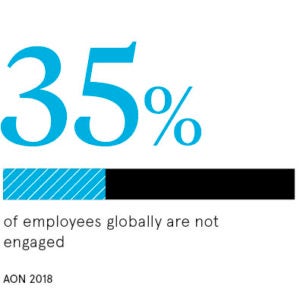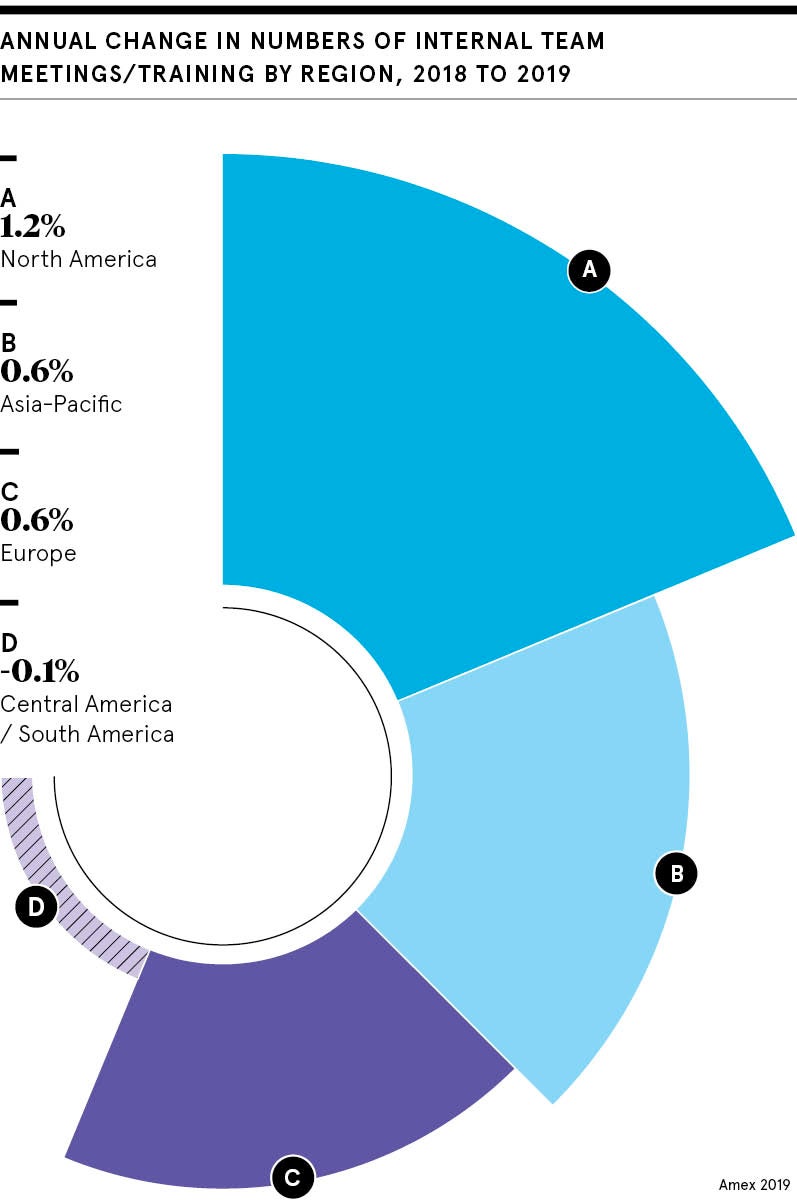Accountants have feelings too, part of an old joke goes. In fact, over a third of qualified auditors feel stressed on a weekly basis, according to research from the Institute of Chartered Accountants in England and Wales.
So at Redbull, the company didn’t need to be told that giving its book-keepers some fun time would be money well spent on its balance sheet. Cue it recently uprooting 40 of its best and taking them glamping for a weekend in the countryside, complete with games, including an inflatable Crystal Maze dome, barbecue, music and campfires.
To really work, events do need to be somewhere away from people’s day-to-day existence
The experience, created by events organiser Shout About London, is just one example of what managing director Ben Gamble is seeing more demand for, a return to corporations seeing the benefits of corporate events, specifically those aimed at staff rather than prospects or clients.
“After some challenging years for businesses, where budgets for staff events were often the first things to be cut, more now understand the importance of team building in the workplace,” he says.
Growing awareness of benefits of corporate events aimed at staff
 As customer experience champion Martin Newman, who has produced events for the likes of Ted Baker, Harrods and Burberry, says: “Firms wanting to be customer centric are increasingly realising they need to be employee centric first. It’s when employees don’t feel their interests are put first that they don’t buy into, or feel emotionally connected to, what the business is about.”
As customer experience champion Martin Newman, who has produced events for the likes of Ted Baker, Harrods and Burberry, says: “Firms wanting to be customer centric are increasingly realising they need to be employee centric first. It’s when employees don’t feel their interests are put first that they don’t buy into, or feel emotionally connected to, what the business is about.”
Some events reward star performers, but more often than not internal event organisers report companies wanting to embed cultures, bolster engagement and create an all-in-it-together feel. “We’ve created our Isobelly Laughs nights, four-times-a-year stand-up comedy nights held at our own office, with room for 150 people,” says Jamie Williams, managing partner of creative agency Isobel.
“We book the best established and emerging comedy acts going, and for a cost of just hundreds of pounds, the vibe and goodwill we experience in the run-up to, and after, the events is fantastic.
“New joiners often bring their friends, almost to showcase ‘this is where I work’. In our industry, the events have become so well known they are a differentiator at a time when recruiting and retaining scarce talent is getting harder.”
Successful internal events require proper investment and planning
But while Mr Williams and bosses at Redbull are clearly confident the business benefits are there to be seen, the consistent problem with staff events is they are hard to link back to important business metrics, notably productivity or reduced staff attrition, in the same way external events clearly create new business.
“This can be problematic,” argues Lisa Hatswell, managing director at Unique Venues of London. “But the benefits of corporate events are there. What firms must remember though is that a meaningful event does require proper investment.
“To really work, events do need to be somewhere away from people’s day-to-day existence, a place that promotes different thinking, which is especially important for the away-day type of events, or just to generate some all-important wow factor.”
Events need to fit who you are as a business and not seem like awkward bolt-ons, trying to artificially inject fun
John Fisher, managing director of engagement and events agency FMI, says: “If you’re going to run an event, it needs doing professionally. Leave it to people who aren’t used to organising them and that’s when employees suffer inappropriate venues, where they can’t hear or see what they’re there for. That creates entirely the wrong impact.”
According to Mr Fisher, running an amateurish event is worse than not doing one at all and some companies do claim the events they run are possible to measure. At Oxford Summer Courses, officially the fourth fastest growing education company in Europe and 35th fastest growing firm in the FT 1000 index, chief executive Harry Hortyn argues its policy of taking the whole team for a team-building event in Tuscany each year has seen it grow revenue from £900,000 in 2014 to £8 million in 2018.

Benefits of corporate events come when they reflect business values
Jason Manning, chief executive of Midlands-based full service agency Superdream, which holds regular office parties, Friday Fizz drinks and a staff summer festival, return on investment needs to be looked at in the round.
“Events need to fit who you are as a business and not seem like awkward bolt-ons, trying to artificially inject fun,” he says. “When they fit an ethos, which ours do around creating a sharing culture and clarity of vision, the benefits of corporate events is clear: they become part of who we are. ‘Any excuse to celebrate’ is one of our business values and we even have a staff forum where employees come up with new ideas for other events to hold.
“The only danger is that the more you give, the more people expect, but I’d almost say that’s a positive. It should be every boss’s role to ensure their staff feel valued. You simply cannot underestimate how important this emotion is to staff nowadays.”
Growing awareness of benefits of corporate events aimed at staff

Successful internal events require proper investment and planning






